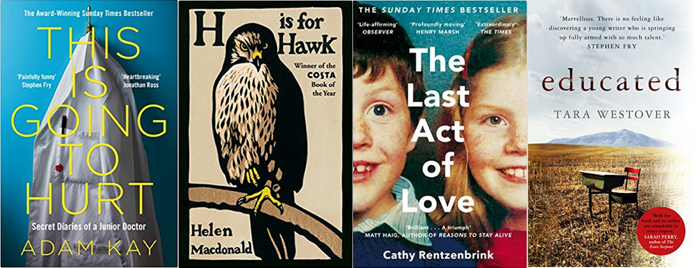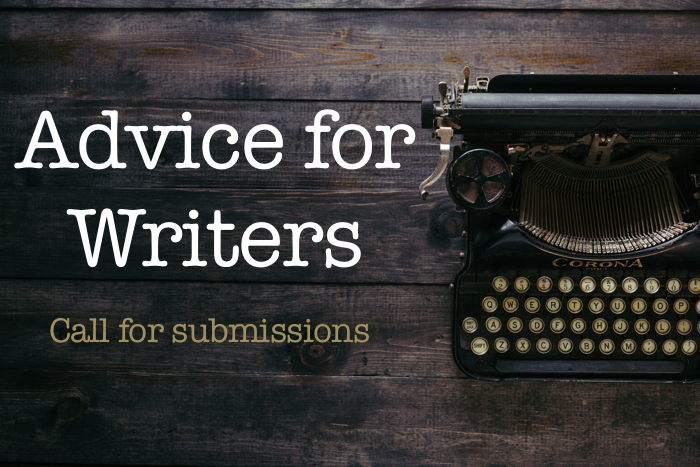Writing and mental health: 8 psychological benefits of writing

Writing can give your mental health a boost. Here’s how.
From clearer thinking to the greater confidence that comes from mastering a skill to processing difficult life events, there are plenty of ways writing can give your mental health a boost. And you don’t have to be a professional writer or published author to experience them. Just crack open your notebook, laptop or phone – and enjoy the process.
Reading time: [rt_reading_time] minutes
Writing and mental health
Long hours spent in isolation, constant deadlines, repeated rejections, writers’ block, low pay… It’s fair to say that being a writer comes with its mental health challenges. The stereotype of an impoverished writer working alone for months on end in a freezing garret sounds a bit grim. Especially since the theme of this year’s Mental Health Awareness Week is ‘loneliness’. Writing can be a solitary profession. And, after the last couple of years, we all need to find a way to connect with the real world – not just the fictional ones in our heads.
But it’s not all bad. The upsides of writing include clearer thinking, a greater ability to process difficult life experiences, a sense of purpose, achievement and mastery – and the pure enjoyment of a creative pursuit. Writing can boost confidence and lower stress. It can even be social. The mental health benefits of writing are considerable. So get writing – and get happy!
8 psychological benefits of writing
Why do you write? I know a few writers who would answer this question with: “Because it keeps me sane!” But how does writing help our mental health? What are the psychological benefits of writing?
While all writing can be good for our mental health, there are particular types of writing that are often mentioned in this context: expressive writing, reflective writing and creative writing. All of which we will touch on in this list of 8 mental health benefits you may experience as you put pen to paper, or finger to keyboard.
1. Clearer thinking
Do you ever write to discover what you think about a particular subject, or to structure your thoughts and communicate them better? Writing can be a great tool for thinking. Bill Gates has described writing as a way to sit down and re-evaluate his thoughts during the day.
Whether you’re writing fiction or non-fiction, the process of writing can help you think more clearly about what you’re writing as you’re writing it. Which is a great argument for just getting started – and not waiting until you feel ‘ready’. (Spoiler alert: you never will.)
Writing can also help keep your mind sharp with age. It’s a form of cognitive exercise that helps keep the grey matter active. Flex your mental muscles and sort out what you want to say on the page – not just in your head.
2. Lifelong learning
Some authors take masters degrees in creative writing. Many don’t. Others read books about writing, go on short writing courses, take Zoom seminars or workshops, and generally take any opportunity to master their craft. Learning is, unequivocally, A Good Thing. But make sure you’re finding time to write too!
Learning isn’t just confined to courses, though. Even if you never take a writing course, you will have to do research in order to write your book – whether it’s non-fiction or fiction.
- Non-fiction writers don’t necessarily pour their innate expertise or years of teaching experience onto the page. Sometimes they write because they’re interested in a topic – and want to research it in order to write about it. Is there a topic that fascinates you? Do you enjoy the research process? Why not write about it – and educate yourself as you share that knowledge and passion with others.
- Fiction authors need to do research too. Whether you’re researching your settings, your characters’ motivations, or obscure technical aspects of 1980s dentistry in the English Midlands, there’s always something to find out about.
The research process can be fulfilling in itself, as you discover more about a topic that you love. Learning something new also helps keep the mind sharp – and keeps you interested and engaged with the world. If you write, you’re likely to be receptive to new ideas and information, and hungry for information and insight.
3. Master a skill
How do you feel when you achieve something? What happens to your mood? Mastery is when we accomplish something that makes us feel good about ourselves – usually a skill. It makes us feel competent, confident and in control. It’s one reason why learning isn’t just good for our cognitive abilities – it feeds our soul too.
It doesn’t have to be a big achievement like getting an agent, landing a publishing deal or becoming a bestselling author. Your achievement could be finishing that chapter or short story. Or writing another 1,000 words. It could even be spending 10 minutes of your day writing.
In fact, it should be something small. Mastery involves choosing a stretching but realistic goal. One where you can see your progress over time in small, achievable steps. Whether your goals are word length or time spent writing, your reward will be to see your novel taking shape over time.
Writing is a great skill to master. It takes time to become a good writer. It’s one of those things you learn by doing. To write better, write more. Write regularly. As you see your progress, you’ll feel good about yourself. Periodically pause, step back, and review your progress so far. You might be amazed at what you’ve achieved!
Building mastery in a skill you want to develop – such as writing – is a great mood-booster. It has great mental health benefits, including greater confidence, concentration and self-esteem – and lower stress. It’s incredibly rewarding to see your progress. You’re doing something you enjoy – and you’re getting better at it! It’s a win-win, and provides positive reinforcement to keep you going.
4. Process difficult events, experiences or emotions
Ernest Hemingway said that writers should “write hard and clear about what hurts”. And this is backed up by research that shows that writing about ‘what hurts’ can help improve our mental health. Bottling up emotions isn’t healthy – and writing is a way to express them.
“Write hard and clear about what hurts.” – Ernest Hemingway
This sort of writing is something that psychologists call expressive writing. It’s writing about traumatic, stressful or emotional events. Research shows that it has been found to improve both physical and psychological health. In a typical study, people are asked to write about traumatic life events for 15-20 minutes a day for four consecutive days – and their outcomes are compared with those who are asked to write about neutral topics.
In these studies, those who write about personal trauma had better outcomes – at least long-term. While the immediate effects often include a short-term increase in distress and negative mood, the longer term effects include improved immune system, lower blood pressure, improved mood and feeling of psychological well-being, fewer symptoms of depression, and fewer post-traumatic intrusion and avoidance symptoms.
Examples of expressive writing about traumatic events include memoirs – such as:
- The Last Act of Love by Cathy Rentzenbrink
- H is for Hawk by Helen Macdonald
- I Belong Here by Anita Sethi (check out Anita’s nature-writing masterclass)
- Love Child by Allegra Huston (check out Allegra’s memoir-writing masterclass).
Is writing a substitute for therapy? Not really. But expressive writing may be used as a therapeutic tool. Writing a memoir may be cathartic, and help you to process difficult life events and emotions. Or it may not. Tread carefully, be kind to yourself, and do what feels right for you. But if you ‘write what hurts’, in addition to the psychological benefits of the process, you may get the beginning of a memoir out of it. Or something that you can use in your fiction.
5. Increase self-awareness
It’s not just about expressing your emotions. Studies also show that writing leads to increased self-awareness – and that this is good for your mental health. We’re not talking excessive rumination and over-thinking here – which can lead to anxiety. Self-awareness is an ability to turn your attention inwards, towards the self. Self-awareness is something we’re probably familiar with as introspective writers who can get lost in our own thoughts!
The mental health benefit is that we become more aware of our feelings, beliefs and values. If you’re familiar with mindfulness meditation, you’ll recognise some of these benefits. Research suggests that increased self-awareness can lead to greater job satisfaction, better decision-making, and improved professional and personal relationships. All of which are indicators of good mental health.
Expressive, reflective and creative writing can all lead to increased self-awareness. Any writing requires us to choose our words carefully, whether to conjure up fictional worlds or express clear meanings. But reflective writing is perhaps the most obvious. This is often used in work settings as a way to help professionals such as nurses, social workers or teachers become more effective at their jobs. It’s a way of reflecting on professional practice in a critical, analytical way, in order to learn from experience and do better.
While you may not regularly use this type of writing – unless you’re in one of those professions – you can still reflect on your experience and practice as a writer. Think about your experiences, progress, writing plans and aspirations, what you’ve achieved and where you’d like to improve – and write it all down.
Another way you can increase your self-awareness through writing is to adopt the practice of ‘Morning Pages’. This is a key concept from Julia Cameron’s The Artist’s Way, which you might be familiar with. Julia Cameron says:
Morning Pages are three pages of longhand, stream of consciousness writing,
done first thing in the morning. *There is no wrong way to do Morning Pages*–
they are not high art. They are not even “writing.” They are about
anything and everything that crosses your mind – and they are for your eyes
only. Morning Pages provoke, clarify, comfort, cajole, prioritize and
synchronize the day at hand. Do not overthink Morning Pages: just put
three pages of anything on the page… and then do three more pages tomorrow.
Try writing in a stream of consciousness way like this – especially if you feel stuck in your writing. You don’t have to do your actual writing – you can write about your writing.
6. Community and social support
Hang on – writing is a solitary profession, surely? All those frustrating, lonely hours sitting in front of a blank piece of paper or swearing at your laptop? Well, it doesn’t have to be. Yes, there are times when you’ll need to be alone to focus on bashing out a few thousand words. But you can balance that with the social aspects of being a writer. And there are some. What’s more, many of us feel the need to get out more, where possible, after a couple of years of COVID. If you’re a writer, there’s a supportive community of other writers out there.
Literary events are once more happening in person rather than just online. The London Book Fair took place in real life in 2022 for the first time in three years. There are writing courses, literary festivals, educational events and writing groups. You don’t necessarily have to join a writing group where everyone reads out their work and has it criticised (unless you want to). There are some groups where people just meet up to write for an hour or so, in silence, in the company of other writers, in a café. Or just go to your local café for a bit, for a change of scenery and to be with other people.
Some of us need total silence to work. Others enjoy the buzz of working in a cafe, library or shared office space – at least some of the time. You are allowed to leave your desk.
You can also be social with other writers on social media. Look for hashtags such as #AmWriting or #WritingCommunity. You might make new writer friends who you can meet with in real life. I’ve met many writers through ‘tweetups’ – real life meet ups of people who know each other on Twitter.
Because writing can be solitary, it’s good to make the most of opportunities to tap into social support where available. Other writers understand your hopes, dreams and frustrations. You can discuss the highs and lows, the strategies and stumbling blocks, that go with the territory.
7. Greater focus and flow
Does your brain sometimes feel like it has too many tabs open? Writing is great for making you focus on just one thing for a period of time. Switch off your social media, put your phone in another room, and design your workspace as a distraction-free zone. Commit to a specific period of time in which to write – perhaps using a 25-minute timer, if you want to use the Pomodoro Technique.
If you can train yourself to achieve greater focus, you’ll enjoy better mental health (as well as get more writing done!) You’ll have better concentration and reduced anxiety. You’ll be able to focus purely on the task in hand for a while – rather than the distracting cacophony of troubling thoughts in your head.
You may also enter a ‘flow state’. This is a feeling where, under the right conditions, you become fully immersed and absorbed in whatever you’re doing. And it’s incredibly rewarding. Have you ever got so wrapped up in your writing that it has your full attention, you’ve lost all sense of time, and experienced an almost ecstatic sense of clarity, focus and engagement? That’s a flow state. And it’s not just a temporary high – it can bring a lasting sense of happiness and fulfilment.
8. Happiness, purpose and fulfilment
Do you enjoy writing? Great! Do more of it. It’s so easy to get caught up in the busyness of our lives. But it’s important to set aside time for ourselves – however busy we are. Carving out ‘me time’ to do something you enjoy, something that’s just for you, is a great stress-buster.
OK if writing is your full-time job, I guess it’s work (though hopefully still enjoyable!) – complete with deadlines. But that’s not the case for most of us. Even most published authors need to earn money from other work too. Writing can easily get pushed down our list of priorities – whether that’s work or family life.
But it’s OK to prioritize writing – and to prioritize you. You don’t have to have a publishing deal to justify the time you spend writing. Like most of us, you may be in the position of writing completely ‘on spec’, trying to get that manuscript finished so you can look for an agent and a publishing deal. Or perhaps to have a book to self-publish. But, while writing goals and word counts can be helpful, you don’t necessarily need a final end goal – such as publication – in mind. It’s always OK to just write just for yourself. You may need to write in order to discover what it is you’re writing – and what you want to do with it.
One of the joys that writing brings is a sense of creativity and creative fulfilment. And this is where that most familiar of all the writing types I mentioned earlier comes in: creative writing. Creativity is great for boosting self-esteem, confidence and mood. It brings feelings of purpose, fulfilment, accomplishment and mastery. And if you’re a creative person, you probably enjoy creating for the sheer pleasure of creation – whether that’s through writing, art, music or any other outlet. Make time for creativity – even just 10 minutes a day. As the old song goes: enjoy yourself – it’s later than you think.
Your writing, your mental health
Above all, do what makes you feel good. It’s your writing, and your mental health. And you don’t have to show it to anyone. Write authentically, with truth and openness – and don’t worry about what anyone else will think. Write your first draft as if no one will read it. You can always edit it later assuming that everyone will! Don’t worry about other writers, your future readers, being good enough, getting an agent or getting published. Just write. Enjoy the process – and enjoy better mental health. Happy writing!
This is a slightly updated version of a post that first appeared on this site on 13 May 2022.



